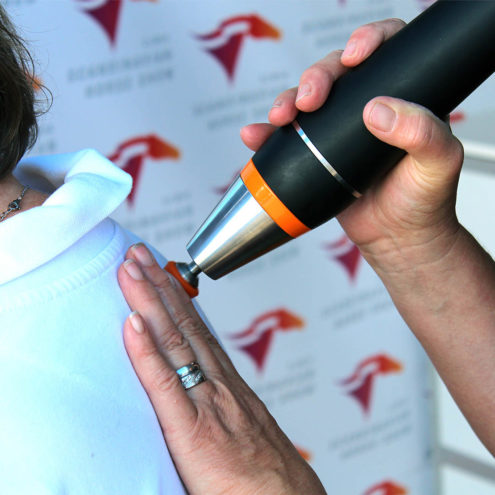Prolonged headache

What are prolonged headache?
Prolonged headache is a type of headache that lasts for more than 15 days a month over a period of three months or longer. It is a condition that can have a significant impact on an individual’s ability to perform daily activities. There are different types of long-term headaches, including chronic tension-type headaches and chronic frequency migraines. Understanding the causes of long-term headaches and learning how to manage them effectively is important to reduce symptoms and improve quality of life.
Causes of prolonged headaches
There are several possible causes of prolonged headaches. One common factor is the overuse of painkillers. Taking painkillers for headaches for more than 15 days a month can actually lead to a vicious cycle of headaches, known as drug-induced headaches. Hormonal factors can also come into play, especially in women, as hormonal changes during the menstrual cycle or at menopause can trigger long-term headaches. Stress and sleep disturbances can also be contributing factors. Muscle tension in the neck and shoulders can be another cause of long-term headaches. Certain genetic factors may also influence individuals to develop long-term headaches. Identifying and addressing these causes is crucial to relieve and prevent long-term headaches.
Symptoms of prolonged headaches
The symptoms of prolonged headache can vary from person to person, but there are some common signs to be aware of. A persistent headache lasting more than 15 days a month is the main symptom of long-term headache. The pain can be pressing or pulsating and can be localized to one side of the head or be more generalized. Sensitivity to sound and light is common, and some people may experience nausea or vomiting in association with the headache. Symptoms can vary in intensity and experience for each individual.
Diagnosis and treatment of prolonged headache
The diagnosis of prolonged headache is usually made through a combination of physical examination, the patient’s medical history and any imaging studies. Determining the underlying cause of the headache is important in order to design an individualized treatment plan. Treatment options may vary depending on the specific situation, but they may include medication to relieve pain and reduce the frequency of headache episodes. Lifestyle changes can also be crucial in managing prolonged headaches. These include reducing stress, establishing a regular sleep routine, avoiding triggers and eating a balanced diet. Physiotherapy can be a valuable component in the treatment of long-term headaches by helping to relieve tension in the neck and shoulder area and improve posture. Complementary therapies, such as acupuncture or relaxation techniques, can also be beneficial. Working with an experienced fascia specialist can help design an individualized treatment plan to manage long-term headaches.
Fascia treatment for prolonged headache relief
Fascia treatment can be an effective complementary method to relieve long-term headaches. Fascia is the connective tissue that surrounds and connects muscles, ligaments and other structures in the body. Working on the fascia can help reduce tension in the muscles of the neck and shoulders, improve blood circulation and promote relaxation. This type of treatment can help reduce pain and episodes of headaches, thus improving quality of life. It is important to consult a certified fascia specialist to receive individualized advice and treatment recommendations based on your specific situation and symptoms in the case of long-term headaches. They can offer expertise and help you design a treatment plan that fits your needs and goals.
Frequently asked questions about prolonged headaches:
What can cause prolonged headaches?
The most common causes of prolonged headaches include overuse of painkillers, hormonal factors, stress, sleep disorders, neck muscle tension and genetic factors.
How are prolonged headaches diagnosed?
Prolonged headaches are usually diagnosed by a combination of physical examination, medical history and possible imaging studies to rule out serious causes.
What treatment options are available for prolonged headaches?
Treatment options for prolonged headaches can vary depending on the underlying cause and the individual situation. They may include medication to relieve pain and reduce episodes of the headache, lifestyle changes such as stress management, physiotherapy, and complementary therapies such as fascia treatment.
Can fascia treatment be effective in relieving prolonged headaches?
Yes, fascia treatment can be an effective complementary method of relieving prolonged headaches by reducing tension in the muscles, improving blood circulation and promoting relaxation in the neck and shoulder area.
What lifestyle changes can I make to manage prolonged headaches?
There are several lifestyle changes that can help manage prolonged headaches. Reducing stress levels, establishing a regular sleep routine, avoiding triggers such as certain foods or environmental factors, and eating a balanced diet can be beneficial.
Advice from a Fascia Specialist
It is important to consult a certified fascia specialist for individual advice and treatment recommendations. They can offer expertise and help you design a treatment plan tailored to your needs and goals. Be sure to follow their advice and customize the treatment according to what feels most comfortable and effective for you.
y understanding and managing prolonged headaches in a holistic way, people can experience relief and improvement of their symptoms. Taking care of your body and choosing the right treatment options, with complementary fascia treatment can make a significant difference to improving your quality of life.
 Search
Search































